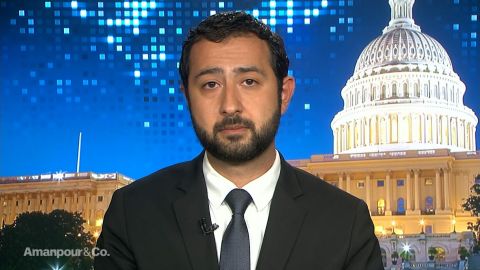Read Transcript EXPAND
TONY GARDNER, FORMER U.S. AMBASSADOR TO THE E.U.: So, when we were in the last year of the Obama administration, we did a series of studies as to what — you know, leaving the E.U. — U.K. would mean, both for us, the United States, for Europe and the U.K. itself. And the result of all of those studies, which were quite detailed studies, it would be bad news for the United States and Europe and the U.K., lots of reasons. But the key reason is we wanted the U.K. to be part of a bigger tent, a part of a community because we think that — we thought under the Obama administration that the E.U., despite all of its faults, was a partnership, was a union that actually can deliver and has useful tools to address common challenges. regional and global challenges with the United States. I still believe that. This administration, the Trump administration, fundamentally believes the opposite, that Brexit is the beginning of other exits that should be encouraged. I think that’s fundamentally illogical.
CHRISTIANE AMANPOUR: Why so? I mean, look, obviously, the United States has a huge trading relationship with the E.U., it’s a major trading partner of the U.S., right. Its biggest draw is second biggest.
GARDNER: That’s right.
AMANPOUR: Why would it be in America’s interest to see the dissolution of this union that has a big economic power but also, it’s kept the peace and shares intelligence and —
GARDNER: Sure.
AMANPOUR: — defense and all of those good things?
GARDNER: Because I think there’s a fundamental misunderstanding of what the E.U. can do. The view from the White House, I think, it’s not an exaggeration to say is that we can do better by negotiating one on one, bilaterally, transactionally and put leverage of the United States on individual countries, let’s say, Germany. What the White House, I think, does not understand is the E.U. has real assets, you mentioned law enforcement and policing but many other things. The Iran deal, maybe this administration doesn’t like, it doesn’t like the climate change deal. But certainly, sanctions you have to believe, if it’s true, the E.U. working together has much more leverage than any individual member state. And there are lots of other examples that I witnessed personally. The E.U. is much more powerful on the world stage than any of the member states acting alone.
AMANPOUR: So, where in your gut do you think this is headed? Not necessarily the votes that’s happening behind us because she’s expected to lose it. But where do you think we’re going to be on the 29th of March when we’re meant to have a deadline for leaving the E.U. and there’s still no deal?
GARDNER: Well, I suspect that the vote will be — take a no deal off the table. They will ask for an extension, and I’m not sure that will be voted into — that will go through. So, there will be another crunch. And I think the risks of a crash out still are there but there could be an extension of time to allow for a technical preparation for a, you know, leaving without a deal. Because, you know, crashing out on the 29th with absolutely nothing is a real risk. So, there might be a few weeks or a few months even, extension period to allow the U.K. to leave without a deal. The fact of the matter is, this country is not prepared for a no deal.
About This Episode EXPAND
In just over two weeks the UK is set to leave the EU, and there is still no deal in place. As parliament votes again on a potential deal, Irish political leader Mary Lou McDonald and Anthony Gardner, former U.S. Ambassador to the EU, join the program to discuss. Later, Mouaz Moustafa talks about the fallout from the Syrian war, and Walter Isaacson interviews MIT’s Joi Ito on tech’s moral quandries
LEARN MORE



